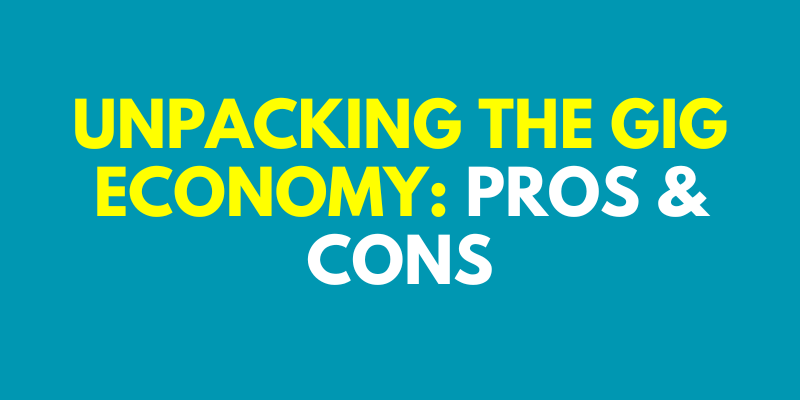The term “gig economy” has become widely used to refer to the expanding trend of temporary, freelance, or part-time employment. A short-term contract or freelance labour is more common than long-term employment in this labour market. The gig economy has given workers new opportunities while also posing a variety of difficulties. We shall examine the prospects, risks, and implications of the gig economy for employees in the twenty-first century in this article.
Opportunities in the Gig Economy
The gig economy can be a great source of Freshers Jobs for individuals who are just starting their careers. With the flexibility it offers, fresh graduates can choose to work on projects that interest them and gain experience in their field. They can also explore different areas of work, develop new skills, and build a portfolio of work that can help them land full-time jobs in the future. Additionally, the gig economy provides a low barrier to entry, allowing freshers to start working and earning money right away, even if they do not have much work experience.
Another opportunity of the gig economy is the potential for greater earning potential. With the rise of digital platforms, freelancers can reach a global market and find clients from around the world. This means they can potentially earn more money than they would in a traditional job. In addition, freelancers have the ability to negotiate their own rates, which can result in higher earnings.
Challenges in the Gig Economy
However, the gig economy also presents a number of challenges for workers. One of the main challenges is the lack of job security. With short-term contracts and no guarantee of future work, gig workers may find it difficult to plan for their future. Financial instability and uncertainty may result from this.
For individuals considering Infosys Careers in the gig economy, it is important to keep in mind that one of the challenges of this type of work is the lack of benefits that traditional employees receive. While Infosys may offer some benefits to freelancers, such as training and development opportunities, freelancers typically do not receive health insurance, paid time off, or retirement benefits. This means that those interested in Infosys Careers in the gig economy must find their own solutions for these needs, which can be expensive and time-consuming. It is important to carefully weigh the pros and cons of a gig economy career, including the lack of benefits, before pursuing Infosys Careers or any other type of freelance work.
In addition, gig workers may find it difficult to establish a professional reputation and build a strong client base. With so many freelancers competing for work, it can be challenging to stand out and attract high-paying clients. This can result in a lower income and less job satisfaction.
Conclusion
Accenture Careers are an example of a potential opportunity in the gig economy for workers in the 21st century. While the challenges of freelance work remain, companies like Accenture offer the potential for more stable work with benefits. However, competition for Accenture Careers can still be fierce, and workers may need to work hard to establish themselves as valuable contributors to the company. Overall, while Accenture Careers can be a promising option for those seeking work in the gig economy, they are not without their challenges.
It is important for workers in the gig economy to understand these challenges and plan accordingly. Freelancers should consider creating a budget and saving for retirement, as well as finding affordable health insurance options. Additionally, they should focus on building their professional network and developing their skills to stay competitive in the market.
In conclusion, there are opportunities and challenges for workers in the rising gig economy. Workers may take advantage of the opportunities presented by the gig economy and prosper in this new labour market by comprehending these issues and making appropriate plans.

